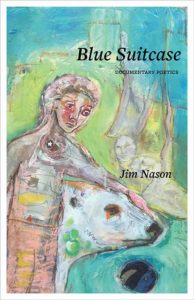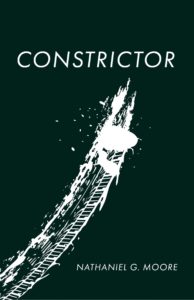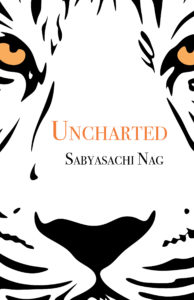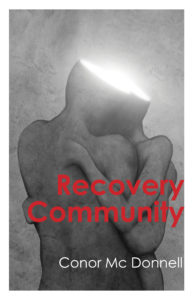by Denis De Klerck
As a young writer, Walt Whitman famously reviewed his own work in the New York papers, describing the first edition of Leaves of Grass as “transcendent and new.” As it happened, he was right about himself, but in general it’s not wise to pretend objectivity when your bias is bound to be discovered by posterity. This is especially true if you don’t intend to hide behind the skirts of an unsigned review. So how about publishers? Would they be credible when writing about book they have paid to produce? “Sort of” would be my definitive response—at least as far as the work of Pier Giorgio Di Cicco is concerned.
Di Cicco and I met around 1987 in a Greek philosophy class. I had gone to the University of Toronto as a mature student and he was there as a result of becoming an Augustinian monk—the philosophy class was a requirement of his theological education. I can’t say I noticed him at first among the 40-odd students. But what finally brought him to my attention was the sound of his voice the first time he spoke in class. It was an actor’s voice, I thought, deep and carefully modulated, even musical. It was, I soon learned, a poet’s voice, not an actor’s, though anyone who has witnessed his funny and often moving public readings will recognize there is a little ham on the bone after all.
During that summer we became friends—an odd pair, really. I was an apprentice cook studying philosophy and semiotics (or semi-idiotics, as I came to think of it) and I went from work to school with a leather satchel full of sharp knives, the tools of my trade, which Di Cicco found endlessly funny. Who needs Occam’s razor in philosophy class when you have a choice between a boning and a paring knife, not to mention a melon baller and an orange zester? He wasn’t exactly a common sight on campus either, being a poet studying, mostly through prayer, to become a monk. Our conversations took place over dinners after class, and since hanging out with me meant he would miss his ride home, we would continue our talk as I drove him late at night to the Mary Lake Monastery in King City.
As I got to know Di Cicco, I naturally explored his work in greater depth and puzzled over the rapid-fire changes in his writing style that culminated in his strange book Virgin Science. It had come out in 1986 and, not knowing what to make of it, critics chose to ignore it, something that rarely happened with his earlier work. The book was, and remains, a stylistic anomaly, and it came out at a time of great personal change for Di Cicco. He was one of the most prolific poets working at the time and few of his fans would guess that Virgin Science would be his last book for a long 17 years. It certainly never occurred to me that I would one day become the publisher that ended that literary silence.
Over the years Di Cicco and I lost touch. I never did finish university, though I came close, and in the ’90s I ended up as the general manager of Bar Italia, a popular restaurant in Toronto’s Little Italy. Di Cicco left the monastery, but not the church, choosing to pursue ordination as a Roman Catholic priest. One day we bumped into each other on College Street and renewed our acquaintance. I had just started Mansfield Press and had four books under my belt. He seemed a little bemused by my suggestion that there was a whole new generation of readers out there that would value his work if they were introduced to it. We settled on compiling a new and selected book of poetry to re-introduce him to the world. Dennis Lee came on board as the editor, contributing a substantial and thoughtful essay on Di Cicco’s career. There weren’t many new poems to choose from, but the compilation had the salutary effect of getting Di Cicco to write again. Living in Paradise set off a flood of new material and his work quickly regained the audience that had frankly been there all along.
Since then we have published another six books together. His work has garnered critical acclaim, including a nomination for a Trillium Award, and he served as Toronto’s official Poet Laureate until last year. With the publication of Municipal Mind, a prose meditation on the uses of public space and the value of community, he has become a popular keynote speaker wherever issues of city building are discussed, creating an entirely new career for himself as a policy consultant on the provincial and federal level.
It’s been a strange journey for both of us, but the publication of Early Works, which reprints Di Cicco’s Flying Deeper into the Century and Virgin Science, seems to have brought us full circle. Typesetting this book brought back all kinds of memories, not just of Di Cicco, but also of my own apprenticeship as both a cook and a reader, my primary occupations in those years. When we met I had no plans of being a publisher, though I thought it might be nice to see my name in a magazine one day. As it happened, my byline finally appeared on a cover in 1989—I saw it for the first time in a store somewhere in small-town Ontario where I was vacationing. Stumbling across my own name on a magazine was thrilling, though when I look at the cheapness of its production now, I can’t credit my expansive pride. That said, despite a couple of awkward moments that make me cringe 21 years later, I think the profile holds up pretty well. It’s a review of Virgin Science from a time when I could credibly claim to be unbiased and objective. I see a Di Cicco who shows all the hallmarks of the restless intelligence still on display in his newest work.
Reviewing the books I publish is not something I will do in the future, but I offer this one as an example, if nothing else, of the continuities of kinship, despite the periodic disruptions of friendship.
Originally published in Cross-Canada Writers’ Magazine in 1989:
If you have been in the habit of following Canadian poetry at any time over the past decade or so, you will have found it hard to miss the work of Pier Giorgio Di Cicco. Through readings, workshops, lectures and 14 books in as many years, he has established himself as an undeniable presence on the literary scene.
He has also established a characteristic voice in his poems. They are generally written in the first person and are filled with the abrupt turns and startling images one usually associates with Latin American verse. If his metaphors sometimes border on the surreal, they are never gratuitous. They always refer back to the fundamental metaphors of human existence: earth, sky, home, family, the body, the other and, most importantly, the heart. Di Cicco is, above all, the protean apologist of love; his work is an attempt to infuse the everyday with the numinous, the literal with the fabulous. He writes in “The Updating,” from the book Dark to Light (1981): “The verse, a handful of embers in the skull. I blow on them that the breath may fan the world into a glowing.”
With the publication in 1986 of Virgin Science (subtitled hunting holistic paradigms), Di Cicco’s work took a new turn, which, judging by the absence of critical commentary, has left his audience dumbfounded. What makes this book so strikingly different from the previous 13 is his decision to incorporate the lexicon of science and, in particular, quantum physics, into his own familiar poetic vocabulary.
Virgin Science may at first seem to be a complete departure from the earlier books, but it is really a culmination of their concerns. With scientific metaphors, he continues a critique of societal values that began in Flying Deeper into the Century (1982), a book that charted the destruction of the ideals of the 1960s by an apathetic 1980s consumer society. It was an angry work that ranged from discussions of militaristic thinking in the Reagan era to TV evangelism; from the destructive elements of feminism to the self-consciousness of modern-day human relationships. In Flying Deeper into the Century, the method of examination is direct attack. In Virgin Science, Di Cicco takes a subtler approach by examining the thought processes that lie behind 20th-century Western culture.
A more obvious connection between the earlier work and Virgin Science is the search for origins. Born in Italy and raised in the U.S. and Canada, Di Cicco is often led to explore the significance of a Mediterranean imagination caught in a Nordic body. He does this most effectively in the book The Tough Romance (1979). It contains love poems, reminiscences, family portraits and a melancholy awareness that the children of immigrants live in exile from their own past. In Virgin Science, Di Cicco moves beyond his own immediate past to a more universal exploration of a variety of cosmologies. In doing so he turns the personal search for origins into a dazzling, intellectual and spiritual journey. In dealing with the cosmologies of the 20th century, he has had to come to terms with the language and ideas of science.
Despite the overwhelming importance science has in our modern-day culture, it remains forbidding terrain for much of the non-scientific population. This is especially true of quantum mechanics. It was Heisenberg—one of the discipline’s founders—who gave us the “uncertainty principle.” It stated that the laws of nature are not causally determined and that they can be spoken of only in terms of probability. It becomes hard for the average person to believe in the unlimited potential of science when physicists themselves tell us that, after a certain point, research cannot continue objectively. At that point, science becomes metaphysics.
Einstein’s answer to the uncertainty principle was that “God does not play dice with the universe.” Di Cicco, who now lives in an Augustinian monastery, comes to a similar conclusion without, however, denying that the uncertainty principle is as good a metaphor as any to describe life in the atomic age. He refuses to accept that the long road of scientific exploration ends in uncertainty. He extends that road by taking scientific discourse as metaphor; the objectivity of his speculation is founded in the belief that “There is no particle of matter smaller than the heart.” (“Artamovement”)
The “heart,” as Di Cicco quotes Romano Guardini in an epigraph, “itself is mind, but it is evaluating mind, not merely mind obedient to the norm.” This “norm” can be any of the dominant paradigms of thought that are subscribed to by groups of people at different points in history. Ultimately belief in any paradigm comes down to a matter of faith:
THE UNIVERSE IS NOT contiguous in space or
time. Quorums of naming establish their own
ideatic fields behaving like electromagnetic
fields. Believing is seeing. The collective
monocle descends in the night sky like a filter.
The socio-ideatic field stretches as far as the
lake, unrelayed across water because of the
sheer absence of believers.
(“Pan-Psychic Nocturne”)
Di Cicco’s exploration of these “ideatic fields” results in a wide-ranging tour of Western intellectual history. The book is filled with quotes from—and comments on—Plato, St. Augustine, Descartes, Newton, Hegel, deconstruction, semiotics and the various scientific paradigms that dominate 20th-century culture. In the search for a holistic language that can move effortlessly between such a wide variety of cosmologies, Di Cicco takes an obvious joy in plundering scientific discourse for terminology, or, when that fails, to coin neologisms like “eroto-Floridian” to meet his needs. The result is a poetic voice of great wit and seriousness, capable of covering 2,000 years of Western thought at “superluminal” speeds. The reader, however, does not need to be an expert in Western intellectual history to get something out of these poems. They develop their own logic, and the terminology is rendered understandable by the context in which it is found. Di Cicco’s ultimate concern is to establish an intimacy with a technological era that largely refuses to reciprocate. He does this by humanizing the forbidding concepts of science and philosophy.
In an essay entitled “From Science to Literature,” the late Roland Barthes wrote about the responsibility science has to “write itself,” instead of pretending that its discourse is merely direct notation of concrete data. He said, “Only writing has occasion to dispel the bad faith attached to every language unaware of its own existence.” Di Cicco is out to dispel a little of that bad faith in Virgin Science. As he would have it, “Poetry is science with the brains to know you have to live with your metaphors.”
Denis De Klerck is the publisher of Mansfield Press.




























